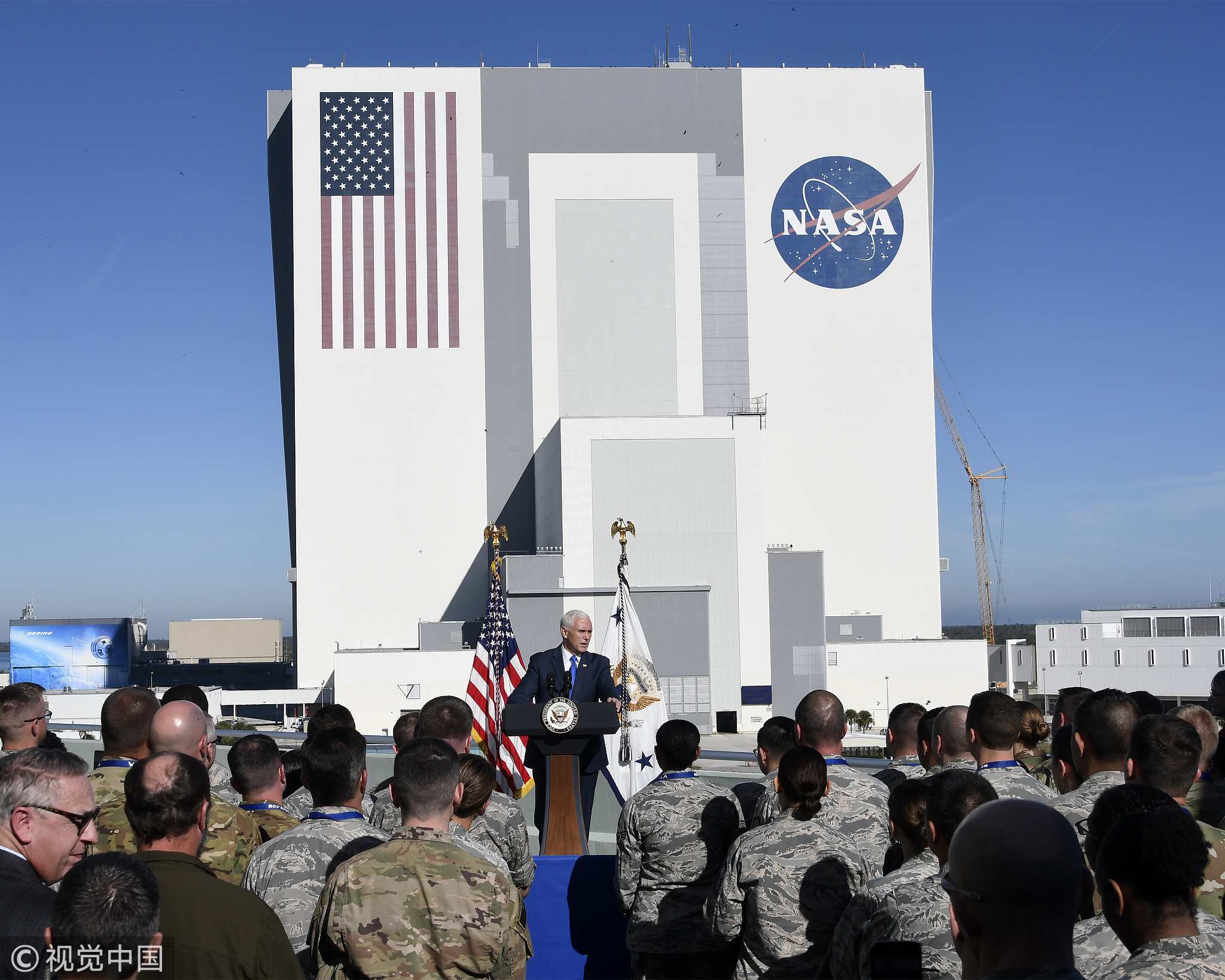
Space
11:28, 20-Dec-2018
China warns U.S. against 'weaponizing' space
Updated
10:41, 23-Dec-2018
CGTN

China said on Wednesday it opposed the "weaponization" of space as it criticized U.S. President Donald Trump's orders to create a new command center for controlling military space operations.
"China has consistently proposed the peaceful usage of space, and opposes the weaponization of space and a space arms race," said Chinese foreign ministry spokeswoman Hua Chunying at a press briefing.
"We oppose even further turning space into a new battleground," she added.
On Tuesday, Trump ordered the creation of "Space Command", a new organizational structure within the Pentagon that will have overall control of military space operations.
SpaceCom, as it will inevitably come to be known, will be on equal footing with other U.S. military commands, such as Central Command in the Middle East or Indo-Pacific Command in Asia, and will require a new headquarters as well as a commander and deputy commander, who will need Senate approval.

U.S. Vice President Vice Pence announced that the President will sign an Executive Order creating a new US Space Command to oversee the military's operations in space. /VCG Photo
U.S. Vice President Vice Pence announced that the President will sign an Executive Order creating a new US Space Command to oversee the military's operations in space. /VCG Photo
It is not the first military space entity proposed by the U.S. president this year.
In June, Trump said he wanted to create "Space Force", an entirely new branch of the military, alongside the Navy, Marine Corps, Army, Air Force and Coast Guard.
He insists such a move is necessary to tackle vulnerabilities in space and assert U.S. dominance in orbit.
But its creation is not a done deal, as it needs to be approved by Congress, and the concept has met with some skepticism from lawmakers and defense officials wary of the cost and added bureaucracy.
China has also bolstered its space capabilities in recent years.
Earlier this month, the country successfully launched the Chang'e-4 lunar probe heading to the far side of the moon, a global first that could boost Beijing's ambitions to become a space superpower.
In 2013, China landed its first unmanned lunar probe "Yutu" on the moon.
(Top image via VCG)
Source(s): AFP

SITEMAP
Copyright © 2018 CGTN. Beijing ICP prepared NO.16065310-3
Copyright © 2018 CGTN. Beijing ICP prepared NO.16065310-3